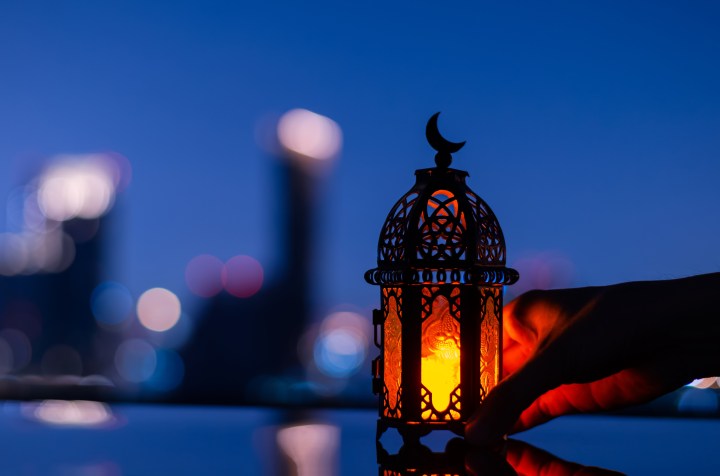
Why charitable giving is an essential element of Ramadan

The Muslim holy month of Ramadan is coming to an end. Around two billion people across the world participate, and a big aspect of the month, and of the Muslim faith in general, is zakat, or charitable giving. To learn more about the causes folks support during Ramadan and how economic headwinds may have affected giving, Marketplace’s Sabri Ben-Achour spoke with Halil Demir, executive director at the Zakat Foundation of America. Below is an edited transcript of their conversation.
Sabri Ben-Achour: How much money do you estimate is spent on charity during the month of Ramadan by Muslims meeting their religious duty?
Halil Demir: That number is very difficult to get. But I will go from American Muslims’ perspective as a minority. So we are, you know, [a] very small minority here in United States. And I think when you look at the numbers, of the organizations that participated, and then the mosque and Islamic center and school, we’ll easily say probably, we raise closer to a billion dollars.
Ben-Achour: Wow, what causes do people generally give to?
Demir: You know, that’s a difference also. Basically, some people will give to issues that are closer to their hearts. And as you know, zakat has limitations. So zakat can be used only for certain things. For example, you cannot give zakat to build a school or build a mosque. So the the Zakat goes to eight categories. And these categories are the first two are poor and needy.
Ben-Achour: What does that look like? What kinds of charities would money go to?
Demir: Let’s talk about from the Zakat Foundation perspective, right? We are a humanitarian organization. We ask our folks to donate to causes that will empower the communities. So we have a project we say we distribute livestock, so please donate your zakat to the livestock that we can give in one of these third world countries, let’s say either in Africa or Southeast Asia, we have these programs. So we will buy two sheep or three, four goats. And with the money with the zakat that donated to our organization, the essence of the zakat is the creating the social justice, economical justice. So when you take these sheep or goats to the family, next year, this family doesn’t need any more zakat. So you literally get them out of poverty. And we convince our communities you know, donate to these causes. Or there are also causes other than, you know, we have a cancer patient children, that you know, family is poor and it’s very difficult financially to support these cancer patient kids. We convince our donors to donate their zakat to take care of these children. But basically zakat, the first one you try to give the zakat to free them, you know from economical desperate situation, get them out of it.
Ben-Achour: I think someone had mentioned as well that earthquake victims in Turkey were a big cause.
Demir: Definitely zakat goes to these people. They lost everything what they have, and they’re living in tent villages. One of these tent villages is actually run by a zakat foundation. So we have 1600 individuals living there. Most of them were in good, good shape. They have homes and overnight now they don’t have nothing. And so yes, you’re supposed to give your zakat to poor and needy, in refugee camps, the widows and orphans and everybody else in community that you’re sure that they really need.
Ben-Achour: The broader economy has faced a lot of headwinds lately. I mean, there’s the pandemic, there’s been inflation. Has that affected how people give?
Demir: Yes, I will say in the history of Zakat Foundation, in the last 20, 22 years we’ve been serving, our nation was very generous during COVID. So each of these humanitarian organizations received more donations during COVID than another time. And right now earthquake, also very generous. And so yeah, you’re right. They are very generous. While we all go through challenges.
Ben-Achour: Inflation over the past couple of years, has been a real challenge. Has that made it more expensive to help people and has it made people more hesitant to give as much?
Demir: That doesn’t seem to be the case. I think people are sharing. I remember this nation is very generous nation, Americans generally. We have donated to causes social causes, and all other causes, $485 billion dollars and I’m talking about numbers 2021. Most of it not coming from the corporate world, a very small portion, in fact, come from corporate world. The rest of it comes from average American people, like us salary people. So the Muslim community is very generous compared to other communities. So yes, inflation and yes, challenges, but our nation, still very generous, still forthcoming when we request and they really rush to give.
There’s a lot happening in the world. Through it all, Marketplace is here for you.
You rely on Marketplace to break down the world’s events and tell you how it affects you in a fact-based, approachable way. We rely on your financial support to keep making that possible.
Your donation today powers the independent journalism that you rely on. For just $5/month, you can help sustain Marketplace so we can keep reporting on the things that matter to you.











